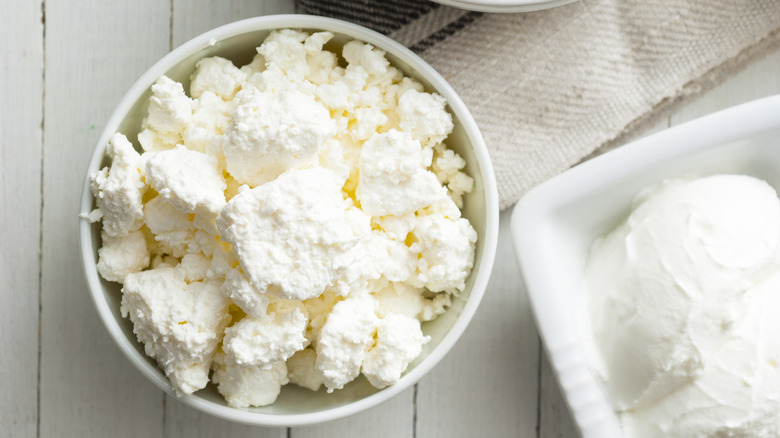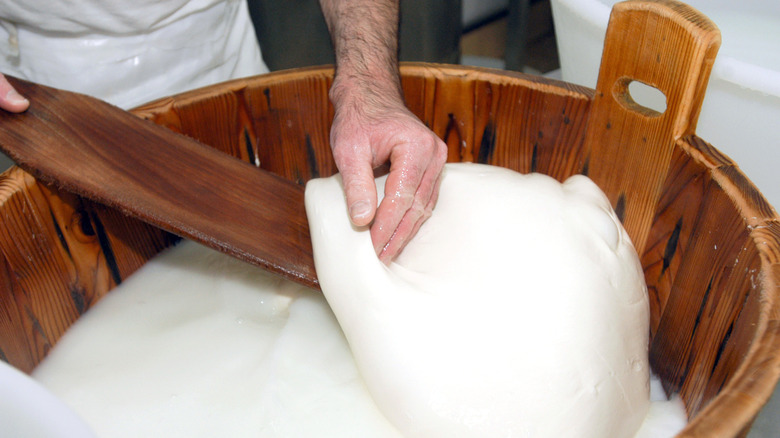Why Ricotta Isn't Technically Considered Cheese
If you are a fan of Italian or Italian-American cuisine, the chances are good that you have stocked your refrigerator with a tub of creamy ricotta on more than one occasion. Ricotta is similar to cottage cheese, featuring soft curds suspended in a milky white liquid that is made from milk, salt, and an acidic ingredient such as lemon juice. Commonly featured in many Italian dishes like classic baked ziti to stuffed ravioli to hearty sausage lasagna, ricotta lends its mild creaminess to other foods outside the Mediterranean pantheon (via The Cheese Professor). These airy, sugar-dusted beignets, for example, take their richness from ricotta, and the ingredient provides a beautifully puffy base for the juicy heirloom tomatoes in this savory tart.
As a dairy product that's often used in rich and savory recipes, ricotta is commonly referred to as cheese. But did you know that, technically, it isn't cheese at all?
Ricotta is a cheesemaking byproduct
It's actually a byproduct of the cheesemaking process, so (naturally) one must make cheese to get homemade ricotta. To do so, you heat salted whole milk to just below boiling point, add lemon juice (or white vinegar) to the hot milk to curdle it, strain the mixture through cheesecloth, and reserve the lumpy mix of curds (via Serious Eats). To separate the mozzarella, the whole milk is heated with citric acid and the coagulating agent known as rennet, and strained to gather the curds, which are then worked by hand. The leftover liquid, known as whey (recall the old nursery rhyme), can be gathered, heated with additional lemon juice, and strained — and you've got ricotta, according to Food.
Commercially, according to DeLallo, the curdy white stuff is created by taking the whey that's left over from making various kinds of cow, sheep, or goat's milk cheeses, typically letting it ferment for a day or so, then recooking it to separate the curds — ricotta, after all, means "recooked" in Italian. Doing so makes the mixture a latticino — a dairy byproduct — instead of a cheese in its own right. The result of the Italian kitchen's propensity towards utilizing every ingredient to its fullest, ricotta is a delicious and endlessly versatile example of "waste not, want not."

